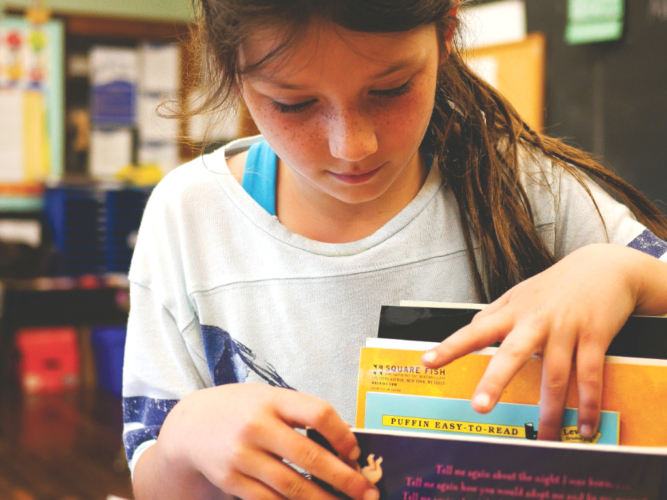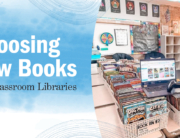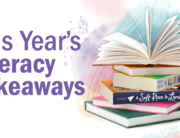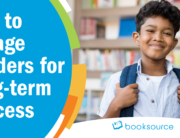As most of us in the realm of education are patently aware, the root issues facing struggling readers vary greatly, and the level and severity of the “struggling” does as well, which makes it difficult to proclaim that there is “a” solution for addressing these readers’ needs. But, as educators, we’re also quite attuned to the level of care and compassion that accompany our efforts at intervening and making gains in literacy when it comes to our striving readers, whatever their specific needs may be.
Though many strategies and programs can be effective in mitigating the situation, practice, it seems, (just as it is the in acquisition of almost any other skill) is a key aspect of making progress at reading improvement. In order to practice reading, those students who don’t have the fluency or automation that are crucial to comprehension will unquestionably need instruction and interventions to master those skills, and that intervention may vary depending on needs and resources. There exist a multitude of programs aimed at such efforts, and although their methodologies and implementation differ, they have the commonality that none of them is meant as a turnkey solution.
In addition to a core intervention program, the effort of supporting struggling readers requires a holistic and balanced approach to be effective.
What can we do to best supplement a Reading Intervention Program?
One solution that cannot be overstated is providing high-interest, quality books at the students’ current reading level.

If practice is important, and practice at a task with which a one struggles is likely to be frustrating, it seems evident that anticipating this frustration and having a strategy to overcome that also becomes imperative. Regular and frequent reading of books that are not appealing or interesting (which varies based on personal interest but in most cases does not include textbook or rote reading), then, seems like an easy way to discourage motivation and increase frustration among those students who already have difficulties in literacy and comprehension.
In order to combat this frustration and help bring struggling readers up to grade level, research indicates that providing books that students can read at 98% accuracy is crucial; this high-success reading allows them to build confidence while making gains in both comprehension and text complexity.
And, those books for struggling readers need to be plentiful and easily accessible.
Though there are many variables at play when it comes to reading improvement for struggling readers, research around strengthening literacy skills suggests choice among and access to high quality, engaging books are paramount. This is true for both early grade striving readers who are still building basic skills as well as those at higher grades who read but at significantly lower levels than their peers. The power of choice and access come in the form of providing intrinsic motivation for students; if they are invested in the content, they are getting the information that fulfills their individual preference, which simply cannot be accomplished with a more programmed or rote approach.

As noted by prominent education and reading expert Richard Allington, “[s]elf selected reading activity seems to be about twice as powerful at generating reading development as teacher-selected reading.” Thus, it is critical that students have a multitude of books at the right reading level to be able to find something that will pique their unique interests. Additionally, many students need direction from a teacher, peer, or other knowledgeable and trusted outside source in finding the books that meet these interests, so having expertise or resources to provide this information is also important.
Knowing is only half the battle.
While this information is likely not shocking or new to many educators, it is helpful to have in making a case for allocating resources in the most effective way possible. Intervention is worthwhile and useful in supporting striving readers, but making sure that the importance of choice and access to good, quality books at just the right level needs to be part of the conversation if we want to give them every opportunity to improve.








[…] and is working to integrate trade books into a reading intervention program, or if you work with striving readers and need some fresh ideas, this webinar is for […]